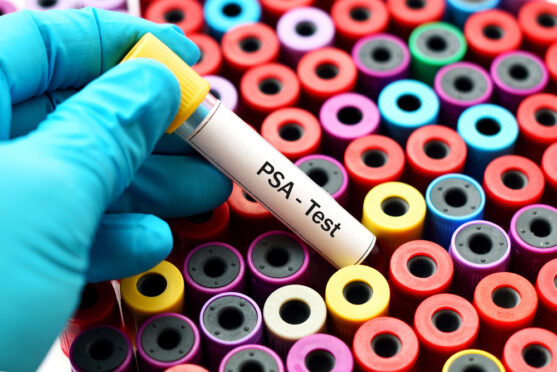Dr Shikhar Kumar, Medical Oncologist, Onco Cancer Centres, explains who should get screened for prostate cancer, when they should do this, and how they can do this.
1.4 million cases of prostate cancer are diagnosed every year worldwide, making it the second most common cancer diagnosed in men.
With improvements in prostate cancer detection and treatment, mortality rates have been declining in the past few decades. Like most other cancers, prostate cancer, if detected early, is curable. The 5 year survival rate of localised prostate cancer is 100% but this drops to 31% if the cancer spreads to the other organs.

Prostate cancer is the only malignancy that has a blood based screening test. PSA (Prostate Specific Antigen) is secreted by the prostate gland into the bloodstream and elevated levels of this antigen can indicate the presence of prostate cancer.
Let us understand a few basics of prostate cancer screening.
1. When should I go for prostate cancer screening?
All men above the age of 50 years should discuss prostate cancer screening with their doctor and consider PSA screening.
Men who are at a higher risk of developing prostate cancer (Black men, family history of prostate cancer in a 1st degree relative prior to 65 years age) should consider initiating PSA screening at a younger age i:e 40-45 years.
2. Does elevated PSA level always indicate the presence of cancer?
Although a cutoff of PSA level of ≥4.0 ng/mL is used most commonly to initiate further testing for the detection of prostate cancer (like a biopsy), there are many reasons for a falsely elevated PSA level. These include a history of recent ejaculation, prostate inflammation/infection, benign prostate hyperplasia (BPH), urine retention, bicycling etc.
Hence, the urologist/oncologist often repeats the PSA test after 2-6 weeks if any of these factors are present.
3. How often should I undergo PSA testing?
The AUA (American Urology Association) recommends that a screening interval of 2 years is preferable to annual screening. However, this interval is not mandatory, the intervals can also be individualized from person to person. For example, someone who has a PSA level of 1.0ng/mL can opt for four year intervals between two PSA tests, whereas someone whose PSA level is just below the borderline (2-3 ng/mL) can opt for annual screening.
4) When should one NOT undergo PSA screening ?
Most clinicians offer PSA screening upto the age of 65-70 years. PSA screening is NOT likely to be beneficial for anyone who has a life expectancy of less than 10 years. For example, a 70 year old male with substantial comorbidities like diabetes, heart disease, high blood pressure etc, is not likely to be offered PSA screening.
To book your PSA test, call 79965 79965 today.

